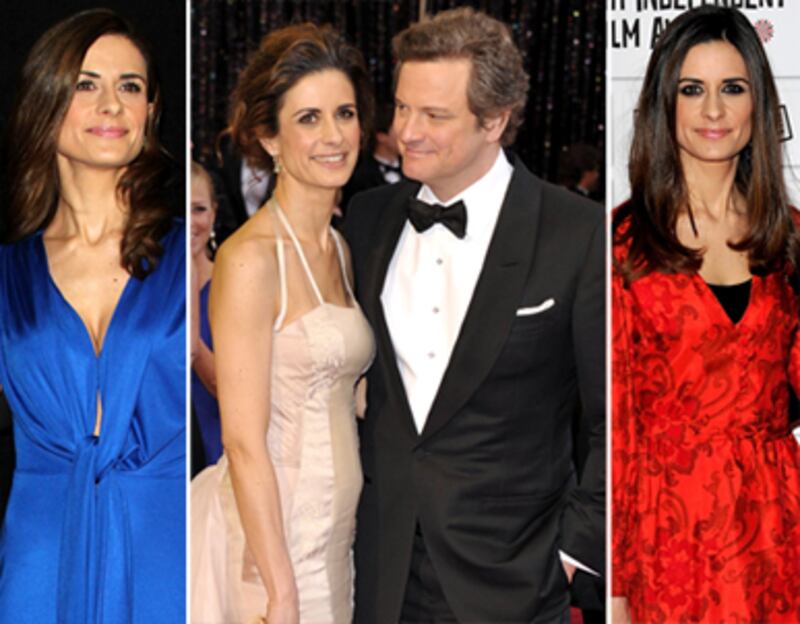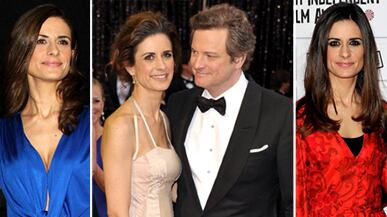Livia Firth, the lucky wife of Colin Firth, has had ample opportunity to dazzle on the red carpet during a hectic awards season. While her husband has been raking in trophies for his performance in The King’s Speech, Mrs. Firth has been cultivating her own following.
By wearing what she preaches, the 41-year-old Italian beauty has managed to make sustainable fashion attractive—a not insignificant feat.
“At first I was thinking that ethical clothing meant hemp and other natural fabrics, which of course aren’t all that glamorous,” she told Newsweek. “But in the end it wasn’t really that difficult to find exciting sustainable designers who were making fabulous clothing.”
Gallery: Livia Firth's Sustainable Looks

Since the opening of her London store Eco Age in 2008, Firth had dabbled in eco-wear. But apart from wearing Stewart + Brown’s organic cotton T-shirts, she had not fully converted. In 2009, however, the author Lucy Siegle threw down the gauntlet, presenting Firth with the “Green Carpet Challenge.”
That year, her husband had been nominated for a Golden Globe and Oscar for his performance in The Single Man, and Siegle, the author of To Die For: Is Fashion Wearing Out the World? used the occasion to challenge her to wear only sustainable and ethical garments on the red carpet and at Hollywood fetes.
Livia Firth took the challenge.
At the Paris premiere of The King’s Speech last year, she wore a stunning dress made from the remnants of one of her husband’s moth-eaten suits.
And so, for the past two years, she has, as she wrote on her Green Carpet blog, tagged along with Colin on the red carpet, using every “opportunity to smuggle "ethical," "sustainable," and "green" fashion into venues and events where it's never been before.”
“It’s important not to be lazy about fashion,” she says. “Sure. It would have been easy to call Versace or Armani and get a dress for the red carpet. But to showcase designers, who use sustainable fashion, makes a better statement.”
At last week’s Academy Awards ceremony she wore a repurposed gown by the London-based, eco-designer Gary Harvey, a former designer for Levi Strauss, who scoured London’s finest vintage shops for dresses from the same era as the The King’s Speech. The designer settled on 11 historic gowns, which he cut up to create just one dress—the one Firth wore. Except for the thread he used to sew the remnants together, everything was recycled.
But few would even notice the difference, if she didn’t point it out. To most observers, the sustainable designs are indistinguishable from other high fashion gowns.
At the Paris premiere of The King’s Speech last year, she wore a stunning dress made from the remnants of one of her husband’s moth-eaten suits, and at the 2010 Academy Awards, she wore a black dress by Orsola de Castro made from material scraps pillaged from the garbage bins of major fashion labels.
“There are two main misconceptions about sustainability in the fashion world,” she says. “The first is that you have to be an eco-warrior to be involved in sustainable fashion. And the second is that it is only for the rich. Actually, sustainable fashion can be simply buying less, buying better, not buying from those companies which mass produce at the expense of the earth or through sweatshops.”
Livia Firth is more than just a pretty frame on which to drape sustainable frocks. In her capacity as an Oxfam ambassador, she has traveled to Bangladesh and Kenya, where she was struck by what she calls the atrocities that mass-market fashion inflicts on both humanity and the planet. Many of the most mundane components like lace collars and synthetic or silk linings of high and mid-range fashion items are produced in sweatshops where workers are not paid enough to eat properly. Gems used as embellishments are often harvested from the earth with no regard to environmental standards. And in addition to wearing clothing made by fashion designers whose concerns for social justice outweigh their bottom line, she blogs about each appearance, telling the history of the gown or the philosophy of the designer.
Firth also advocates ethical “no conflict” jewelry, paying careful attention to where the stones come from and what environmental or humane abuses may have been involved in production.
Even if her husband is not nominated for another round of awards next year, she plans to keep up her eco-advocacy. She and Siegle have ambitious plans to encourage more celebrities to take their Green Carpet Challenge and to entice designers to follow suit by incorporating sustainable methods in production and manufacturing practices. She is also dabbling in her own sustainable designs.
“But I am not an eco-warrior,” she insists. “Eco fashion, green fashion, sustainable fashion—whatever you call it—it is more about reconnecting with the clothing. We’ve lost touch with the environmental and social justice implications of fashion.”
Barbie Latza Nadeau, author of the Beast Book Angel Face, about Amanda Knox, has reported from Italy for Newsweek since 1997 and for The Daily Beast since 2009. She is a frequent contributor to CNN Traveller, Departures, Discovery and Grazia. She appears regularly on CNN, BBC and NPR.






